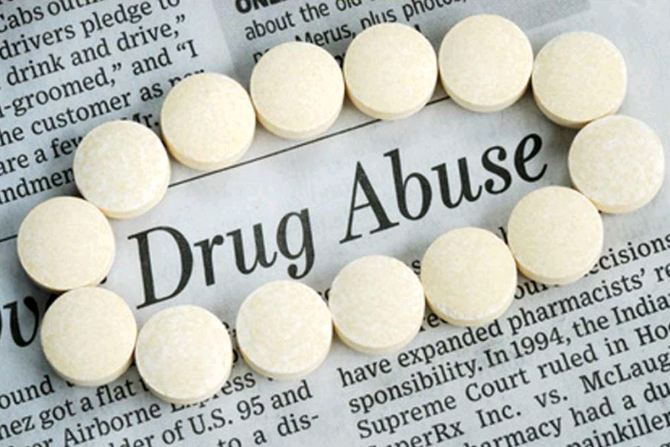A brief peep into our future, as a nation, could be not so rosy but what is particularly scary is an impending and perhaps inescapable, drug epidemic. What is scarier is how we seemingly, and rather disturbingly, play the ostrich at how huge this problem is or the devastating effects it promises. It is so prevalent to have become the norm that one who doesn’t do drugs, in any of its many and ingenious forms, has to, once in a while, check if he’s the one actually on the normality path.
Addictive and obscene behaviours that were hitherto considered motor park louts and socially deviants’ second nature are now common and even glamourised in our universities; citadels of learning and centres of civilisation. There are drug powered orgies everywhere. To them, codeine is water and shisha is the new cool. The quest to get ‘high’ from illicit drugs has even gone insane that they give no fig about the healthiness of what they take in as long as it gives the desired result. Can you imagine human beings now sniff lizards’ dung? Some have become foragers whose job is to look for and fetch Spirogyra which they dry and sniff.
I was told of some female students at a popular religion-based private university who left school to have a ‘good time’ and, after the timeout at the club, followed home some guys who were held spellbound by what they saw. The ladies took the hard drugs provided, weren’t satisfied and sought to be taken to a covered gutter! Having seen their host disgusted by their queer request, they got perfumes, sprayed them all at once into thick towels, buried themselves and boom! These, really, are the mothers of the next generation.
These students are supposedly the leaders of tomorrow. What saddens the heart the more is that these disturbing trends have somehow inexplicably crept into the secondary schools. And this time, it’s not only the young students that are caught in this unfortunate web, the teachers who should be inspiring icons shamelessly compete with them. Well, that too is somewhat inspiring. Talk about salt, a natural preservative, itself being spoilt.
Advertisement
Like many other social vices, unemployment and poverty have been fingered to be major causes of this. I’m afraid this is no more than a rehashed defence to excuse responsibility. Unemployment isn’t uselessness. Not all poor people do drugs. It’s, in fact, a travesty of it. Talking penury, how much does a mixed bottle of codeine cost? Thousands. And some take 5 to 8 bottles daily, spending roughly 10 thousand naira. If that’s poverty, I’m afraid the real people below the benchmark would love to be in that category.
Esteem issues, largely borne out of the empty and bandwagon standards we set particularly on social media, also have a hand in this. Slim is cool and not-slim is trash. Resultedly, some female folks get entangled in the net of esteem deficiency which leads them to unhealthy practices. Apart from anorexia nervosa, a distressful medical condition, they are also at risk of hardened addiction by binging on hard drugs like cocaine. The quest for a flat tummy has really gone bonkers that many see the healthy path as too long and stressful and therefore opt for the short drug-powered adventure. It doesn’t end well.
The absence of independent-mindedness and the dependence on some external loci of control have always made us look for motivation or, sometimes, instructions in others who aren’t necessarily better than us. Aristotle was a mentor to many philosophers. Abraham Lincoln inspired many great leaders. His ideas are even still ideals in some quarters. Nelson Mandela was the hope and the model of steadfastness to many Pan-Africanists. The litany is long. Who are the models of this century? Our thieving politicians? It’s a no brainer that contemporary youngsters will rather choose the fugitive and drug head but affluent stars. Model shopping is nobody’s job by the way but it’s known that our favourite songs’ lyrics, music videos and the like are full of cuss words, objectification of women and glorification of hard drugs. It takes a five-star miracle for the younglings not to pick on these things.
Advertisement
This is no moral argument. It can’t be. This is not a generation that lives on or cares about morality. Besides, morals are largely cultural, relative and subjective. So, not that- it will be a futile exercise. This is neither an advocacy for complete eradication of drug abuse. You know what they say about wishes, beggars, and horses? It will be a tall order! The crux is we need to actuate pragmatic and enduring solutions before it becomes too late.
To expedite action, government, especially at the centre needs to step up its game on blocking illicit drugs’ major routes of entry into the country. This is a national emergency. All apparatuses of national security especially in the health sector should be activated to ensure those already trapped in the country are flushed out. The indifference due to the notion that the country is only a ‘conduit pipe’ for this drugs is wrong- it is now a priced destination.
Furthermore, for any progress to be made really, there should be a continuous and aggressive nationwide campaign against and sensitisation on the potential destruction of drugs. This will serve two purposes concurrently. The first is to break the intergenerational transfer of this dreadful menace and the second is to win over and rehabilitate those who are already involved. Focused counselling is highly needed in our schools, especially at the secondary level. Alumni associations and Parents and Teachers Associations should look in this direction.
This is treating it as a medical emergency. Rehabilitation centres should flourish to accommodate people who seek help. In addition to actually doing its work of teaching morals and proper living, religious bodies or institutions could help in this regard. These are the kinds of projects they should champion. That, of course, will be complementary to the efforts of NGOs and the government. Government, in particular, should make investment in its human resources a priority. Of what use are capital infrastructures if the people to use them are mentally damaged?
Advertisement
Lawal Temitayo, a psychologist and writer, tweets @Lawatem.
1 comments







Quite a confronting topic that, as rightly put, is in urgent need of structured solution.
Unfortunately, the nation isn’t mentally stable/healthy itself to take on such precautionary project.